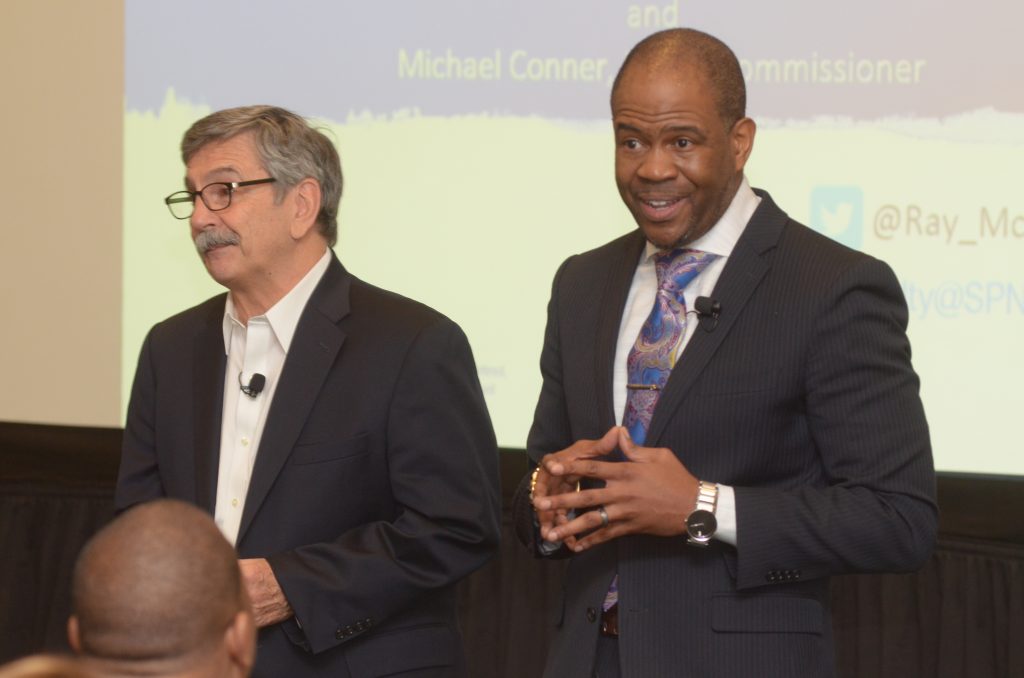Michael Conner and Ray McNulty want to revolutionize the way students learn after COVID-19.
The duo encouraged AASA conference attendees Saturday morning to be future-focused and willing to create the change they see as necessary, instead of adapting to change imposed by others.
“Adapting is not gonna help us,” said McNulty, president of the Successful Practices Network in Rexford, N.Y., and a principal architect of the AASA Learning 2025 initiative.
In their panel discussion on the final day of AASA’s National Conference on Education titled “Leadership for Learning 2025: Education in a VUCA World,” Conner, a superintendent in Middletown, Conn., and McNulty invited attendees to consider ways they can thrive during uncertain times and help shape their own future.
“What are you gonna do with your school system?” McNulty asked. “Because within two years, you will have artificial intelligence that will be on every laptop in every home that will write for you.”
Conner and McNulty have a vision for what education should look like by 2025, and they want educators to be proactive, not reactive.
“Somebody needs to wake up every day in your system thinking that there’s a fire,” McNulty said. “We gotta get out of here, we gotta look to the future. That’s where we need to go. There has to be somebody that does that.”
McNulty spoke about disruptive innovation and how it often starts off with people rejecting the change, but it ultimately moves the world forward. Uber, Amazon, Airbnb and Netflix all seemed like wild ideas at first, but now they are part of our daily life, he explained.
McNulty handed the PowerPoint clicker over to Conner who dove into before, during and after COVID-19.
“March 12, 2020, changed the lives of everyone,” he said.
Conner told the story of a meeting he had around that time with 40 people where he recalls telling them that these uncertain times were their opportunity to “reimagine the business model of education.”
Before COVID-19, the constant in education was time, and learning was the variable, he said, yet now COVID-19, time and learning are the variables, but the students are the constant.
Conner added: “My first day I became a superintendent, I scared people when I said, ‘You know what … I love the kids a little bit more than you. My decisions are not going to be grounded on your needs, certainly grounded on the kids because why? I love the kids a little bit more.’”
Before concluding, Conner made a point to emphasize how equity can’t be a buzzword in schools, and we should focus on allyship instead. “We need empathy,” he concluded.
(Sarah Maninger is a reporting intern with AASA’s Conference Daily Online and a senior journalism major and sports administration minor at Belmont University.)


